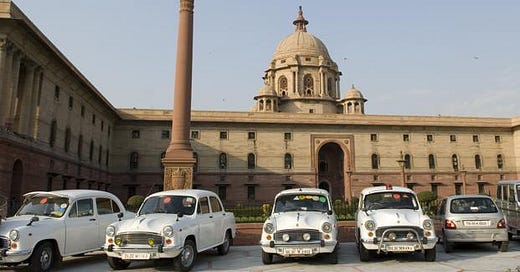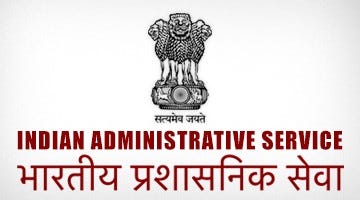IAS reborn as ICS: the Indian Customer Service.
IAS, the successor of the heaven-born ICS — the Indian Civil Service — of the British-Raj, has been at pains to demonstrate that it is…
IAS, the successor of the heaven-born ICS — the Indian Civil Service — of the British-Raj, has been at pains to demonstrate that it is fundamentally different from its earlier avatar. ICS, despite its name, was neither Indian, nor Civil, nor a Service: it was British, Military and a Rule. IAS is supposed to be the integral part of the federal, democratic polity under the Constitution of India, with reference to Articles 310 and 311. The focus, it is argued, has now changed from regulatory to developmental and thence from blue-print scheme implementation for beneficiaries to being facilitative agents for the clients.
It might, therefore, surprise many, if I stated that the IAS has, slowly but surely, morphed into ICS. Yes, I say that with all responsibility but with the caveat that the ICS in the present-day context stands for the “Indian Customer Service”. Verily, the job of an IAS officer at any level is now to tackle a wide-variety of irate customers, even though the tools in his hands to tackle the same are outdated and obsolete and also, the authority to do so is quite nebulous and often open to post-facto and frequent questioning by multiple agencies with supposedly 20/20 hindsight.
The “customers” are not necessarily common citizens, although we all like to pay lip-service to the being essentially there for the poorest of the poor and for the excluded sections of the society, but more influential sections of the society like legislators, political leaders of all levels, the political executive, senior bureaucrats, journalists, rich businessmen, advocates et al. These are the customers who are not only looking for a “tatkal” service but also a “First-Class” flying experience, irrespective of the merits of their case from a procedural or legal perspective. That you, or in many cases they, have subscribed to an oath to uphold the Constitution and the law is not something can be allowed to stand between your spirit of service and their sense of entitlement.
The time, resources and the capacity of a civil servant, and by extrapolation, of the bureaucracy in general is severely limited, and this preferential treatment is necessarily at the cost of quality of service which a common citizen, nay the customer, gets. However, your reputation is made or marred by the feedback of the elite class and in many cases, they are also responsible for your “performance appraisal” and no sensible bureaucrat would like to invite reprisals from them. Your career-progression and postings are also dependent to a large degree on their feedback and opinion, both formal and informal.
So, what is the objective of the IAS…..errrrrr…..ICS officer now? The motto is that “Customer, not the Constitution, is Supreme”. The underlying objective of the officer becomes not merely to do what the elite customer desires but firstly to make sure that he is not offended or peeved. The idea is that even when the job cannot be done for any reason whatsoever — legal, financial, administrative or policy — every officer strives to make sure that the customer leaves with a belief that if the job wasn’t done it was not because of your lack of efforts but because of systemic constraints beyond your control. No sensible officer ever says, “Sorry! This is patently illegal; it can’t be done!”; you say, “I shall try my level-best to try and find a way to get this done.”
Often the 5-star clients also know fully well that the job for which they are approaching you cannot be done but they are coming on account of their own political compulsions and to satisfy their political constituency. The manner in which you deal with them, especially when they are accompanied by their supporters, is of tremendous importance to them, irrespective of the outcome of their work. Thus, form and manner, not substance of your words and actions makes all the difference.
So, the IAS has been reborn into its new avatar: Indian Customer Service. The “Front-Desk” may quite literally be the “affront-desk” for the common man, but for those who truly matter it is the gateway to the exclusive “First-Class Lounge”. The specialization of the officer to is gauge the importance of the customer, not the gravity of his problem, and deal accordingly. The ability to change your facial expression from an assumed scowl or frown to a 1000-Watt Madhuri Dixit smile, depending on the customer, is a quality that is highly valued. There are appointments for some and disappointments for most but then for the real VVVIP class, there’s always a red-carpet that can be rolled out at a moment’s notice, notwithstanding your “prior engagements and meetings.” After all, didn’t Mahatma Gandhi say, “Customer is the King”?
___________________________________________________________________
K.B.S. Sidhu. The author is an IAS officer of 1984 batch of Punjab cadre. The views expressed are his own.
He can be reached on kbs.sidhu@gmail.com or @kbssidhu1961 or https://www.facebook.com/kbs.sidhu
___________________________________________________________________






